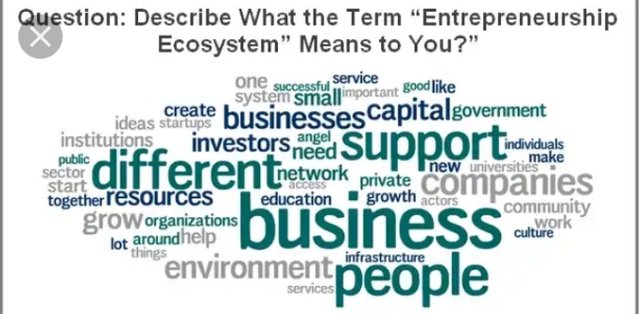The First Thing You Need to Know About Entrepreneurship Ecosystems
The term “entrepreneurship ecosystem” describes the way individuals, companies, organizations, and governments interact to influence the development of entrepreneurs and their firms in a single metropolitan area or region. It is typically used to refer to all local entrepreneurs and interacting organizations, but it is important to note that each local ecosystem is comprised of many smaller, industry-specific ecosystems with unique investors, talent, and other resources. For example, the full entrepreneurship ecosystem in a city could include a well-developed ecosystem in the manufacturing sector, but a poorly-developed ecosystem in the professional services industry.
International organizations, such as the Organisation for Economic Co-operation and Development, classify the components of an ecosystem into broad categories that capture the many potential influencers of entrepreneurship. The most common categorizations include the following components:
Culture
Entrepreneurship support and infrastructure
Financial capital
Human capital
Laws and regulations
Market conditions
Categorizations such as these are exhaustive, but they do not help leaders understand how an ecosystem is performing. The effectiveness of an entrepreneurship ecosystem – how well it enables entrepreneurs to access resources, such as customers, talent and financing – is difficult to measure directly. This leads many leaders to focus on evaluating the outputs of an ecosystem, such as the number of new companies that start within it. While measuring these outputs can be useful, they fail to provide a picture of an ecosystem’s overall performance.
At Endeavor, we believe that the most important things to measure to evaluate ecosystem performance are the desired outcomes – job creation and value creation from entrepreneur-led companies. Entrepreneurship ecosystems that produce these things are the ones that are healthy and successful.

This blog is here to investigate the ideas introduced in this post; to share lessons drawn from successful ecosystems around the world, and proven ideas that practitioners and policy-makers can use to improve the environment for entrepreneurs in your city or region.